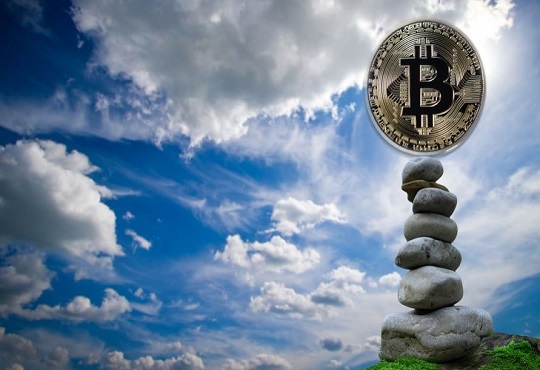What Makes Bitcoin Different or Truly Stand Out?
cioreviewindia Team | Tuesday, 22 June 2021, 09:12 IST
 The last few months in the cryptocurrency market can be said were quite crazy as we experienced some steep climbs and big drops. It has almost felt like a roller coaster that is just waiting to lose control. The price action experienced with Bitcoin can be said to be a thrilling and at times quite painful experience and this may make many lose sight of what they are investing. More so, it appears as though all the coins are working in tandem and this should beg the question on where is the difference?
The last few months in the cryptocurrency market can be said were quite crazy as we experienced some steep climbs and big drops. It has almost felt like a roller coaster that is just waiting to lose control. The price action experienced with Bitcoin can be said to be a thrilling and at times quite painful experience and this may make many lose sight of what they are investing. More so, it appears as though all the coins are working in tandem and this should beg the question on where is the difference?
How can you distinguish one coin from another and more so, how can you the investor distinguish the long-term value of a coin?
The Network Effect
Bitcoin has the largest network and benefits from the network effect, so other coins are essentially playing giant track games. This has been seen from the many Bitcoin trading platforms as well such as Bitcoin Prime. Bitcoin is 7 days a week and all other altcoins are a bit different.!! Needless to say, this kind of "innovation" is at best trivial and not universally applicable. This is because Bitcoin's network effect has increased over time and network users have been optimized according to network standards, attracting more and more people.
Real Innovation
Decentralized digital scarcity can be said to be the real innovation, bitcoin is the first and as this article reveals, these coins are always unique. All the other so-called innovations, such as the shortening of verification times, the change of certificates, Turing exhaustiveness, different signature algorithms, different methods of classifying transactions, even individuals, etc. are just small variations of the giant innovation that is Bitcoin.
Decentralization
Another key feature of Bitcoin that other coins do not have is decentralization. Decentralization means there is no single point of failure or bottleneck for Bitcoin. All other works have a founder or company that made them, and they have the greatest impact on that work. For example, a user-forced hard fork (a backwards-compatible change) indicates that the coin is fairly centralized.
Centralized coins have the "merit" of adapting to the situation quickly to meet the demands of the market. Centralization can be said to thus be a certainly good thing for a business, as they are also out to make money through the provision of products and services. Centralized businesses can best respond to current demands as well as change their products and services to gain more profits.
However, centralization loses merit on the money aspect. First, one of the main value propositions for value preservation is that it does not change qualitatively (that is, it is immutable). Value sellers need quality because they remain the same or improve over time. Changes that reduce it (eg, supply inflation, reduced acceptability, changes in security) fundamentally change the usefulness of money as a store of value.
Second, monetary centralization tends to change the rules and often has dire consequences. Indeed, the economy of the 20th century concerns central banks which gradually reduce the value in use of nominal money. For these reasons, the average life span of nominal currency is 27 years, although it is used almost universally across the country as a medium of support and exchange for powerful institutions such as governments. The “characteristic” is the capacity and use of a rapid response which is also important for the survival of a currency due to its scarcity and immutability.
According to a HuffPost, all crypto coins and ICOs except Bitcoin are centralized. For ICOs, this is clear. The organization that issues the ICO and creates the token is a unified entity. Since they have issued coins, they can change the token usage, change the coin's incentive, or issue more tokens. In addition, may refuse to accept certain tokens for goods or services.
Bitcoin bears a difference. One critical thing that Satoshi did was by disappearing. Originally, Satoshi handled much of the coin’s development. By taking himself off the equation, all opposing parties (users of various classes) have their say in how the network works. All upgrades are voluntary (i.e., soft forks) and do not require you to do anything to hold your Bitcoin. That is, there is no point left of failure. Bitcoin has several open-source implementation systems that can continue to provide options to all users, even if the entire team of developers goes missing. In Bitcoin, you own your own Bitcoin.
This is a very good thing because there is no central authority that is capable of compromising the usefulness of the part. In other words, Bitcoin is a great store of value because it is practically in scarcity (not theoretically or temporarily), and does not change qualitatively without everyone's consent.




